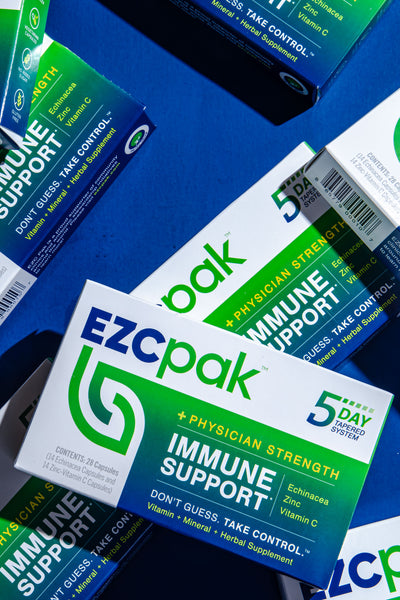The 2017-18 flu season is one of the worst in recent memory. In fact, for the first time in over a decade, the CDC announced that every portion of the continental United States was experiencing widespread flu activity.
People are calling out sick from work. Kids are staying home from school. More and more infected Americans are rushing to emergency rooms. If you’re lucky enough to have been spared by this deadly flu virus, you’re probably wondering how you can continue to stay well as others around you seem to keep getting sick.
In this article, we’ll discuss four tips to stay healthy when someone in your home or office comes down with the flu.
1. Get a Flu Shot -- Yes, Even Now
Every fall, you should prepare for flu season by getting a flu shot. It can protect you from the virus altogether, or make symptoms less intense. It also provides herd immunity to those to weak to receive the vaccination. If you haven’t had a flu shot, get one now. It does not matter if it is well-past September, when many get their shots. Even years when the vaccine is less effective, it is worth getting.
Insurance usually covers flu shots, and even if you must pay out of pocket, they aren’t expensive. You can get them at most large pharmacies, some grocery stores, and your doctor’s office. Use this flu vaccine finder for a partial list of providers near you.
2. Keep Your Hands -- and Everything Else -- Clean
One of the best ways to prevent infection spreading is to keep things as clean and germ-free as possible. Wash your hands regularly, using good hand-washing techniques. The Center for Disease Control (CDC) outlines exactly how to wash your hands properly:
- Wet your hands with running water, then apply soap.
- Lather hands, including back of hands, between fingers, and under fingernails.
- Scrub for at least 20 seconds.
- Rinse hands under running water.
- Dry hands with a clean paper towel, or allow them to air dry.
At work, make sure to use a paper towel to open doors and remember that communal resources such as printers and coffee machines may be used by those who are still contagious. Clean them with a disinfecting wipe before you start.
Hopefully, your workplace has a generous sick policy and allows those who are infected to work from home or take the day off completely.
3. Consider Wearing a Flu Mask When Necessary
Home, of course, often presents even more of a challenge for those looking to stay well. Parents are tasked with taking care of sick kids. They cannot simply put them in a room and wait for them to get better. As silly as it might look, you may want to consider wearing a mask that covers your mouth and nose while in close proximity of sick family members. According to the Mayo Clinic, you can catch the flu when you inhale, ingest, or pick up germs from a cough, sneeze, or breath. Flu masks might help keep airborne germs out of your mouth and nose.
You probably don’t want to spend all night sleeping in an uncomfortable surgical mask. If your partner is sick, then let them have the bed all to themselves. You’ll be safer sleeping alone on the couch.
4. Keep Your Hands Off Your Face
No matter how good you are about washing your hands, there are many moments during the day where your hands might come into contact with flu germs. Picking up a child’s stuffed animal, petting the family pup, closing a door, opening the refrigerator. If you’re sharing space with infected people, those germs are out there.
Since you can’t disinfect every single thing, every single time, it’s good practice to try and keep your hands away from your mouth and face. Wash your hands thoroughly before applying makeup, brushing your teeth, or even scratching an ear.






